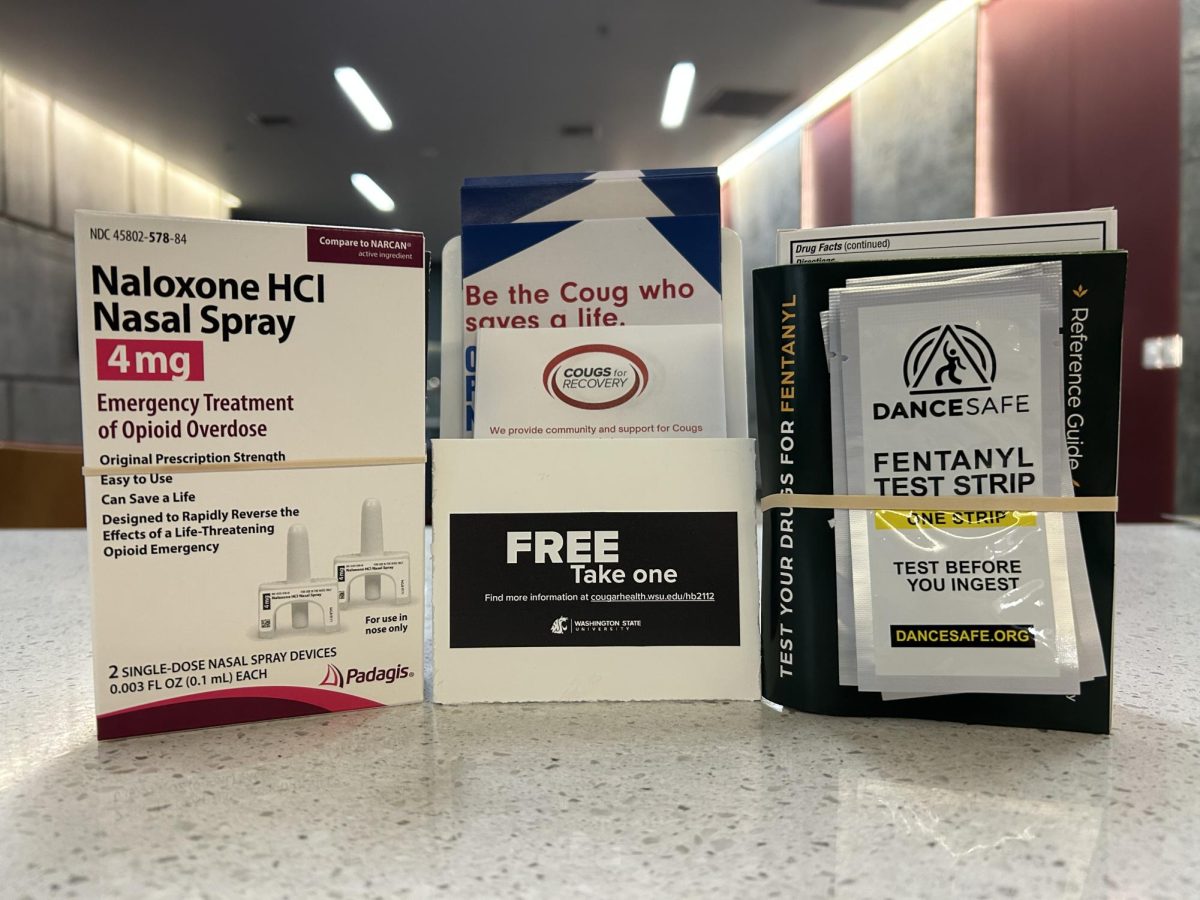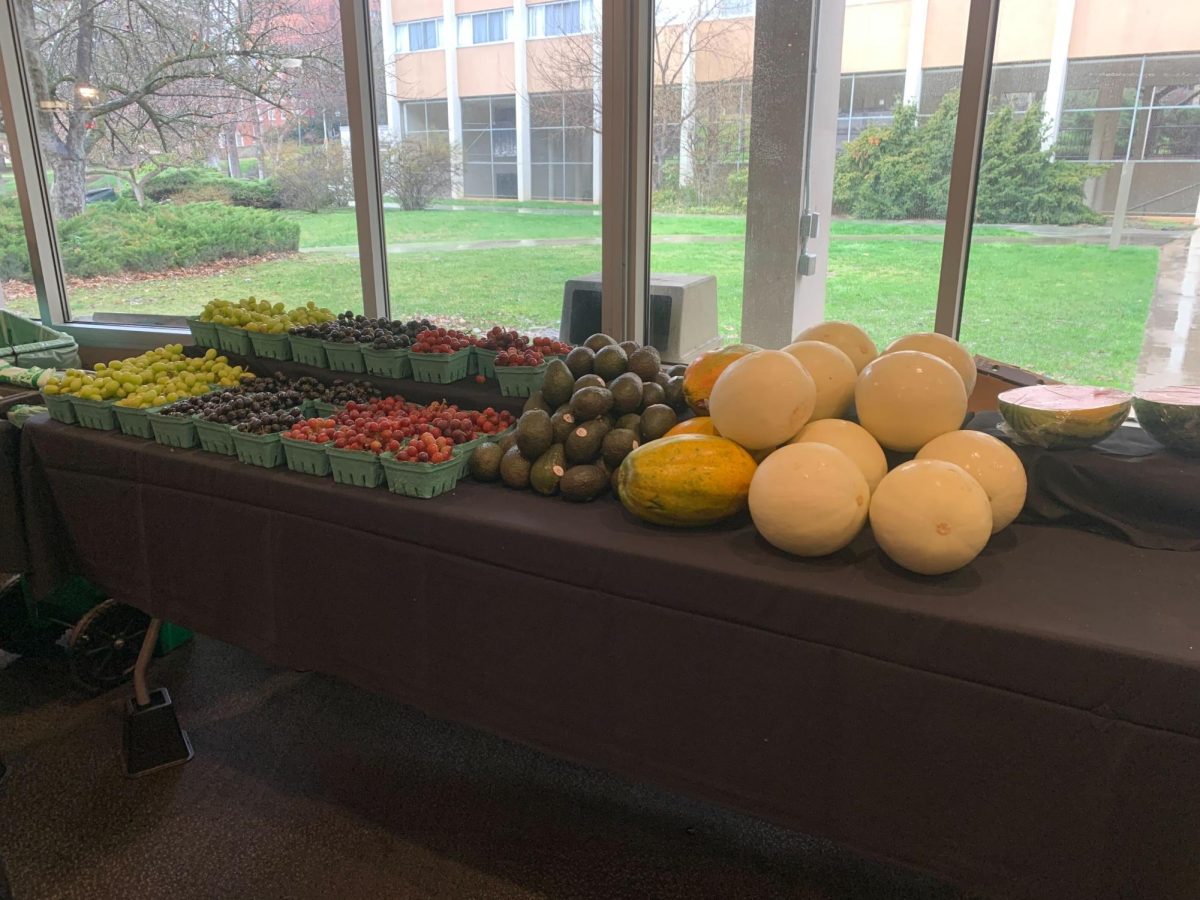WSU has introduced a harm reduction initiative designed to increase student safety amid the growing opioid crisis.
The program offers free Narcan and fentanyl test strips to students at campus pharmacies and area desks, aiming to prevent overdoses and provide students with the tools needed for safe substance use practices.
The initiative launched in response to the ongoing opioid overdose epidemic, which has become a significant cause of death across the United States. Fentanyl, a synthetic opioid, is 50 to 100 times more potent than morphine and is often mixed with other drugs, sometimes leading to accidental overdoses, according to the National Institute of Drug Abuse.
In Washington, nearly 57% of overdose deaths involve fentanyl. Narcan is a life-saving medication that reverses the effects of an opioids, including fentanyl.
Patricia Maarhuis, harm reduction and recovery support manager, said the initiative began in Spring 2023 due to an increasing demand for overdose prevention resources. The passage of HB 2112 played a role, requiring higher education institutions to provide such services.
Student advocacy also played a role in combating overdose risk.
“This program really started with the students,” said Sunday Henry, Cougs Health for Recovery representative. “ASWSU and Whitman County Public Health secured funding, and together, we made it happen.”
WSU’s harm reduction program is part of a larger effort to create a supportive, stigma-free student environment, Henry said.
“Substance use is often connected to other health issues, including mental health struggles,” she said. “This initiative is about supporting students’ overall well-being.”
The distribution is anonymous to ensure students feel comfortable accessing these resources without fear of judgment.
“We want students to know this is here for them, no questions asked,” said Elizabeth Nazarov, Cougs for Recovery coordinator.
In addition to Narcan, fentanyl testing strips are available to help students detect fentanyl contamination. Students are encouraged to attend training on how to properly use these resources, Henry said.
“We want to promote awareness and get as many students trained as possible,” she said.
The program is a collaboration across WSU, local public health organizations and students. Cougs Health for Recovery, a student-run group, plays a key role in distributing supplies and educating peers.
“Student employees are integral to this project,” Henry said. “They help ensure students know where resources are located and how to use them.”
WSU’s efforts have already received positive feedback from students and faculty alike, Maarhuis said.
“Students are excited to have access to these resources,” she said. “Some faculty have even incorporated harm reduction into their curriculum.”
While the program has made significant strides, Henry said she remains focused on expanding it further.
“We are constantly looking for ways to improve and make resources more accessible,” she said.
WSU’s broader health strategy continues to focus on students’ mental, emotional and physical well-being, with harm reduction playing a critical role in supporting those affected by substance use.
For more information on overdose prevention resources, visit the Cougar Health Services website.















